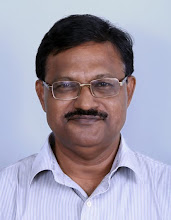Research and training, transfer of technology
to be taken up by
Gandhiji Institute of Sustainable Development
It was grand finale at Nadukani, the hill-top of this part of Idukki district, when the Gandhiji Institute of Sustainable Development, the research and training wing of the Gandhiji Study Centre, was inaugurated on December 15.
Padmashree Prof N S Ramaswamy inaugurated the institute, which is the brain-child of
P J Joseph, who likes to bestow half of his time and energy for social work and sustainable developmental activities and farming in addition to politics.
GISD was opened on the occasion of the centenary celebrations year of launch of Satyagraha by Mahatma Gandhi in South Africa in 1907.
Prof Utpal Sharma, director, School of Planning of the Centre for Environmental Planning and Technology University, Ahmedabad, State Minister for Public Works Mons Joseph, MPs P C Thomas and Francis George, former vice-chancellors Dr Cyriac Thomas( Mahatma Gandhi University) and Prof Babu Joseph (Cochin University of Science and Technology), Idukki district collector Ashok Kumar Singh and a plethora of other guests participated in the function and offered valuable suggestions.
Prof Ramaswamy, who is a repository of varied experiences and wisdom, in his capacity as founder-director of Indian Institute of Management, Bangalore, National Professor of Management, chairman of CARTMAN, Bangalore, and Indian Heritage Academy, former chairman of Animal Welfare Board of India, Committee on Meat Industry, former director of National Institute for Industrial Engineering, Mumbai, professor of J B Institute of Management of Bombay University in addition to various other assignments, called for restoring the balance of nature. Earth should be respected as mother.
By improving agriculture on a sustainable level, livelihood and income can be assured to the people. Rain harvesting, solar energy generation, organic farming and related activities would fetch good returns for the people.
Education tourism, health-tourism etc should be made widespread. Equitable distribution of resources could be ensured. Half of the 65 lakh Keralite families settled outside the State could be brought back, if the facilities are properly utilised.
Prof Ramaswamy maintained that the Rs 25,000 crore remittances from abroad could not offer a sustainable economy for the State.
The feeling of negativity should be shed. By developing a positive attitude, integrated development can be ensured. China, Japan, Korea etc are progressing well on a positive note. China was far behind India in developmental matters. Now it is 40 years ahead of India in development matters. The country experimented with a combination of communism and capitalism and has been thriving on sustainable development.
Prof Ramaswamy was reaffirming his belief that inland waterways should be strengthened, forests should be conserved, skill-oriented and vocationalised education should be imparted and there should be development-oriented attitude about everything.
Kerala, which is endowed with rapture of rains, should exploit availability of water for its developmental needs.
He was of the firm opionion that animals are not offered the incentives they deservc. In rural areas, the farmers and animals live together. Animals fetch seven per cent of the GNP for the nation. They provide Rs 1,60,000 core income for the country. Cattle offer milk, meat and employment for the people. As much as 80 per cent of cattle-rearing works are undertaken by women. Therefore, any incentive given to cattle-rearing goes to the aid of women.
Cattle save 60 lakh tonnes of petroleum for the nation. Half the ploughing is done by bullocks. They offer Rs 20,000 crore on this score alone.
Railway development should be expedited. In China trains run at speed of 400 kms per hour, whereas in India the speed is 40 kms per hour. We must have bullet trains, he said.
GISD is situated atop 3000-foot-high Nadukani hill, which offers exhilarating scenery all around. The complex has solar energy water conservation facilities.
Saturday, December 22, 2007
Subscribe to:
Post Comments (Atom)


.jpg)



No comments:
Post a Comment